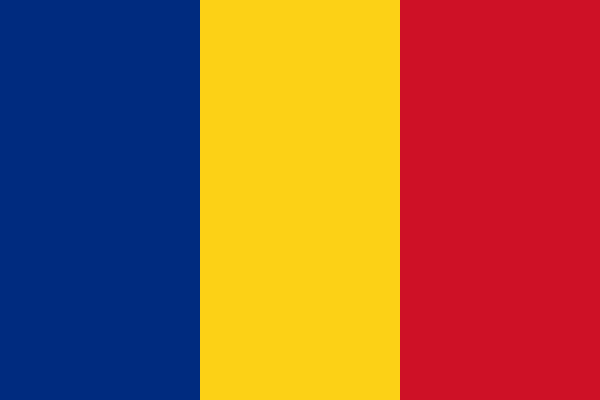Romania - statistical data
Romania is a country located in Southeastern Europe, bordered by Ukraine to the north, Bulgaria to the south, Serbia to the southwest, Hungary to the west, and Moldova to the east. It has a diverse landscape, with the Carpathian Mountains running through the center of the country and the Danube River forming its southern border. The country has a temperate-continental climate, with hot summers and cold winters.
With a population of approximately 19 million people, Romania is the seventh most populous country in the European Union. The majority of the population is ethnically Romanian, with Hungarian, Roma, and German minorities. The country has a relatively low population density, with most of the population concentrated in urban areas such as Bucharest, Cluj-Napoca, and Timisoara. Romania has a relatively high level of emigration, with many Romanians moving abroad in search of better economic opportunities.
Land of Romania
Romania is a country rich in natural beauty and diverse landscapes. From the Carpathian Mountains to the Black Sea coast, Romania offers a wide range of environments to explore. The country is home to numerous national parks and protected areas, making it a haven for biodiversity and wildlife.
In addition to its natural wonders, Romania also boasts a rich cultural heritage. The country has a long and storied history, with influences from Roman, Ottoman, and Austro-Hungarian civilizations. This cultural tapestry is reflected in Romania's architecture, cuisine, and traditions.
Overall, Romania is a land of contrasts and contradictions, where ancient traditions coexist with modern influences. Whether you're interested in exploring the great outdoors or immersing yourself in the country's history and culture, Romania has something to offer every traveler.
Climate of Romania
Romania experiences a temperate-continental climate, characterized by four distinct seasons. Summers are typically warm, with average temperatures ranging from 25 to 30 degrees Celsius. Winters, on the other hand, can be quite cold, with temperatures often dropping below freezing. The country also experiences a fair amount of precipitation throughout the year, with the highest levels typically occurring in the spring and autumn months.
Due to its geographical location, Romania is subject to influences from both the Mediterranean and continental climates. This results in a diverse range of weather patterns across the country, with regions such as the coast experiencing milder temperatures compared to the interior. The Carpathian Mountains also play a significant role in shaping the climate of Romania, with higher elevations experiencing cooler temperatures and more precipitation than lower-lying areas.
Overall, the climate of Romania is characterized by variability and contrasts, making it a fascinating area of study for meteorologists and climatologists alike. From the snow-capped peaks of the mountains to the sunny shores of the Black Sea, Romania offers a diverse range of climates and weather conditions for researchers and enthusiasts to explore.
Languages of Romania
Romania is a diverse country with a rich linguistic heritage, boasting a wide array of languages spoken by its population. The official language of Romania is Romanian, a Romance language that shares similarities with other languages in the region such as Italian, French, and Spanish. Romanian is spoken by the majority of the population and is the primary language used in government, education, and media.
In addition to Romanian, there are several minority languages spoken in Romania, reflecting the country's multicultural history. Hungarian is the most widely spoken minority language, particularly in areas with a significant Hungarian population. Other minority languages spoken in Romania include Romani, Ukrainian, German, and Turkish. These languages are often used in local communities and cultural events, contributing to Romania's linguistic diversity.
Overall, the languages of Romania play a significant role in shaping the country's cultural identity and reflecting its history of diverse influences. The coexistence of multiple languages in Romania highlights the country's commitment to preserving its linguistic heritage and promoting multiculturalism among its population.
Demographic trends
Romania is experiencing significant demographic trends that are shaping the country's population dynamics. One of the key trends in Romania is the aging population, with a decreasing birth rate and increasing life expectancy. This demographic shift is leading to a shrinking workforce and challenges in providing social services for the elderly.
Another important trend in Romania is urbanization, with a growing number of people moving from rural areas to cities in search of better job opportunities and higher living standards. This trend is leading to increased pressure on urban infrastructure and services, as well as changes in the cultural and social fabric of the country.
Overall, understanding and addressing these demographic trends is crucial for policymakers and planners in Romania to ensure sustainable development and well-being for all segments of the population. By analyzing and responding to these trends, Romania can better prepare for the future and create policies that support a healthy and thriving society.
Romania interesting facts
Romania, a country rich in history and culture, offers a plethora of interesting facts that make it a fascinating destination for travelers and scholars alike. One of the most notable aspects of Romania is its diverse landscape, which includes the Carpathian Mountains, the Black Sea coast, and the Danube River. This varied terrain provides a habitat for a wide range of flora and fauna, making Romania a haven for nature enthusiasts.
In addition to its natural beauty, Romania is also known for its unique traditions and folklore. One of the most famous Romanian traditions is the celebration of Easter, which includes a variety of customs such as painting eggs and participating in religious processions. Romania is also home to a rich literary tradition, with renowned writers such as Mircea Eliade and Emil Cioran hailing from the country. Furthermore, Romania has a vibrant music scene, with folk music playing a significant role in the country's cultural identity.
Overall, Romania is a country with a rich and diverse heritage that is sure to captivate anyone who visits. From its stunning landscapes to its vibrant cultural traditions, Romania offers a wealth of interesting facts that showcase the country's unique character and history.
